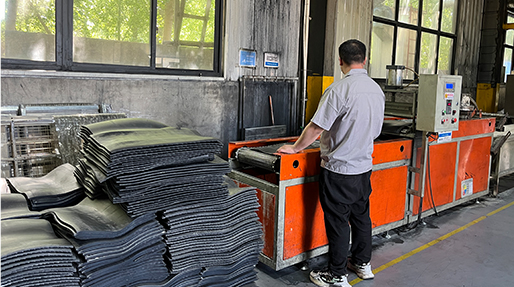Durable High-Performance Fuel Hose for Efficient Petrol Transportation
Dec . 03, 2024 20:45 Back to list
Durable High-Performance Fuel Hose for Efficient Petrol Transportation
Understanding Petrol Fuel Hoses Importance, Types, and Maintenance
Petrol fuel hoses are integral components in the automotive and machinery industries, responsible for transporting fuel from the tank to the engine in a safe and efficient manner. Understanding the significance of these hoses, the various types available, and the best practices for their maintenance can help ensure optimal vehicle performance and safety.
The Importance of Fuel Hoses
Fuel hoses play a critical role in any petrol-powered vehicle. They are engineered to withstand various challenges posed by both the fuel itself and environmental conditions. Petrol can be corrosive and has a propensity to degrade certain materials. Therefore, fuel hoses must be constructed from robust materials that can resist the adverse effects of hydrocarbons and high pressures.
The safety aspect of petrol fuel hoses cannot be overstated. A compromised or damaged hose can lead to fuel leaks, which not only reduces fuel efficiency but also poses significant fire hazards. Consequently, vehicle manufacturers often emphasize the importance of using high-quality fuel hoses that meet stringent industry standards.
Types of Petrol Fuel Hoses
Navigating the market for petrol fuel hoses can be complex due to the variety of options available. Generally, fuel hoses can be categorized into different types based on their construction and intended use
1. Rubber Fuel Hoses These are the traditional choice for many applications. Rubber hoses are flexible and resistant to heat and pressure, but they may have limitations in terms of longevity and exposure to certain chemicals.
2. Braided Fuel Hoses These hoses feature a braided exterior that offers additional strength and protection against abrasion and pressure. They are often used in racing applications due to their durability and resistance to kinking.
3. Ethanol-Compatible Hoses With the rise in the use of ethanol-blended fuels, hoses specifically designed to handle the corrosive nature of ethanol are becoming increasingly important. These hoses are made from materials that can endure higher concentrations of ethanol without degrading.
4. Silicone Fuel Hoses While not as common for high-pressure applications, silicone hoses are known for their flexibility and heat resistance. They are suitable for low-pressure fuel systems and can withstand a wide temperature range.
petrol fuel hose

5. Metal Fuel Lines In certain applications, metal fuel lines are utilized for their rigidity and durability. While not traditional hoses, these lines can provide secure and leak-free connections, particularly in high-performance vehicles.
Maintenance Best Practices
Proper maintenance of petrol fuel hoses is essential to ensure their longevity and functionality. Here are some key practices
1. Regular Inspections Periodically check hoses for signs of wear, cracking, or drooping. Look for any leaks around joints and connections. Early detection of issues can prevent disastrous failures.
2. Replace When Necessary Fuel hoses should be replaced according to the vehicle manufacturer's recommendations or if signs of deterioration are observed. A good rule of thumb is to replace hoses every 4 to 5 years as a preventive measure.
3. Use Quality Products Always opt for hoses that adhere to industry standards and are designed specifically for petrol usage. Cheaper alternatives may save money upfront but can lead to costly repairs and safety hazards in the long run.
4. Keep Fuel System Clean Ensuring that the fuel system is free from contaminants can prolong the life of fuel hoses. Consider using fuel filters and periodically cleaning the fuel tank to reduce the risk of clogging or degradation.
5. Proper Installation When installing fuel hoses, ensure that they are not twisted or kinked, as this can restrict fuel flow and increase the risk of damage. Use appropriate clamps to secure the hoses and avoid any undue stress on the connections.
Conclusion
Petrol fuel hoses are crucial for the safe and efficient operation of vehicles and equipment. By understanding the different types available and adhering to maintenance best practices, vehicle owners can contribute to safer, more reliable, and efficient fuel delivery systems. Awareness and proactive measures can save money, enhance performance, and most importantly, ensure safety on the road.
